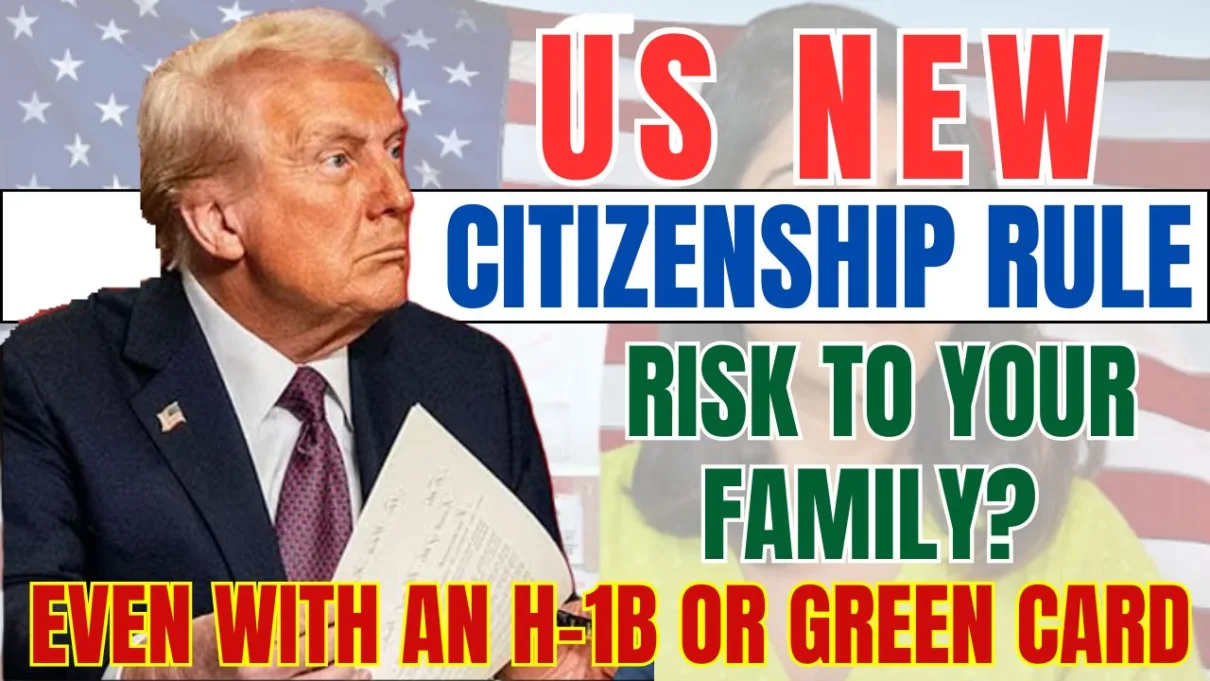Are you an international graduate currently holding an H-1B visa? Are you contemplating whether a Green Card is the right option for you? Here, you can find essential information, guidance, and timelines that are crucial for your decision-making process.
H-1B Visa or green card: The Green Card, officially known as the Permanent Resident Card, is a vital document for anyone aspiring to become a naturalized citizen of the United States. Even if citizenship is not your goal, obtaining a Green Card is often the most viable pathway for those wishing to extend their stay in the U.S. after the maximum six-year duration of the H-1B visa.

H-1B Visa
The H-1B visa is a temporary employment-based visa that permits foreign nationals to work in the U.S. Upon approval of your H-1B visa application by the U.S. Immigration Department, you receive a visa that signifies your qualifications and the legitimacy of your employment.
The application process for an H-1B visa involves submitting a form and attending an interview, but it is important to note that you cannot apply independently; your prospective employer must initiate the application on your behalf. Required documents for the H-1B visa include a valid passport, a recent photograph, an appointment letter, and proof of fee payment, among others. Initially, the H-1B visa is valid for three years, with the possibility of a three-year extension.
If you intend to stay in the U.S. after your H-1B visa expires, you must either:
– Initiate the Green Card application process, or
– Transition back to an F-1 student visa, which limits your work opportunities.
In summary, after six years on an H-1B visa, you must either be actively pursuing a change in your visa status or preparing to leave the U.S. For many H-1B visa holders wishing to remain in the country, applying for a Green Card through employment is the most logical next step. While the Green Card application process can be complex and time-consuming, understanding the various categories and requirements is essential before you embark on this journey.
Impacts regarding changes:
The implications of this change will impact a significant number of individuals. Specifically, over one million Indians currently in a prolonged queue for employment-based green cards will be affected. Following the executive order, which takes effect 30 days later, any child born in the U.S. to a mother who is in the country temporarily—whether on a visitor visa or a non-immigrant visa, including dependent visas such as H-4 or various work visas—will no longer automatically acquire U.S. citizenship if the father is neither a U.S. citizen nor a green card holder.
The recent executive order poses a significant challenge to the 14th Amendment, prompting a wave of anxiety among immigrant families striving to secure U.S. citizenship for their unborn children. On January 24, 2025, reports emerged of Indian parents hastily arranging for early deliveries in anticipation of President Donald Trump’s impending deadline for birthright citizenship, set to take effect on February 19. This controversial order has instigated a sense of urgency among those holding H-1B or L1 visas, as they seek to ensure their newborns are granted U.S. citizenship.
The executive order, enacted shortly after Trump assumed the presidency, directly contests the traditional understanding of the 14th Amendment, which has historically conferred citizenship to all individuals born on American soil, with the exception of children born to foreign diplomats. Under the new directive, automatic citizenship is denied to children born to parents residing in the U.S. illegally, and it also applies to those legally present on temporary visas, including tourists, students, and work visa holders.
US H-1B Visa Reforms: salary-based selection instead of lottery!
H-1B Visa Update: New Form I-129 Mandatory for 2025 Petitions
Let’s know about the Green card
Green Card Validity
Typically, Green Cards are issued with a validity period of 10 years. It is necessary to renew or replace your Green Card every decade, and there is no cap on the number of renewals you can obtain. However, if you hold conditional permanent resident status, you will be required to renew your Green Card every 2 years.
FAQs
Can anyone change their F1 visa to a Green Card without first obtaining an H-1B visa?
To transition to a Green Card, you typically need to have an H-1B visa. If you only possess an F1 visa, you would need to apply for an EB-1 visa, which is a first-preference employment-based visa.
Is it possible to apply for both an H-1B visa and a Green Card simultaneously?
Yes, you can apply for both at the same time since the H-1B visa is considered a dual-intent visa, allowing for both work and residency. It is often advisable to pursue both applications concurrently.
Can anyone use H-1B visa to obtain permanent residency?
Yes, you can achieve permanent residency by applying for and securing a Green Card through your H-1B visa.
What happens to H-1B visa once someone receives a Green Card?
After you obtain a Green Card, your H-1B visa will no longer be necessary, and you will not be eligible for it.
What advantages does a Green Card offer compared to an H-1B visa?
An H-1B visa permits you to live and work in the U.S., but a Green Card grants permanent resident status, which can be renewed every 10 years. Additionally, it allows the holder to apply for U.S. citizenship, a benefit not available with any visa.
What should a person do while waiting for Green Card?
Since the Green Card processing time can be lengthy, many applicants focus on enhancing their credit profiles. If this hasn’t been a priority for you, it’s important to start working on it now.
